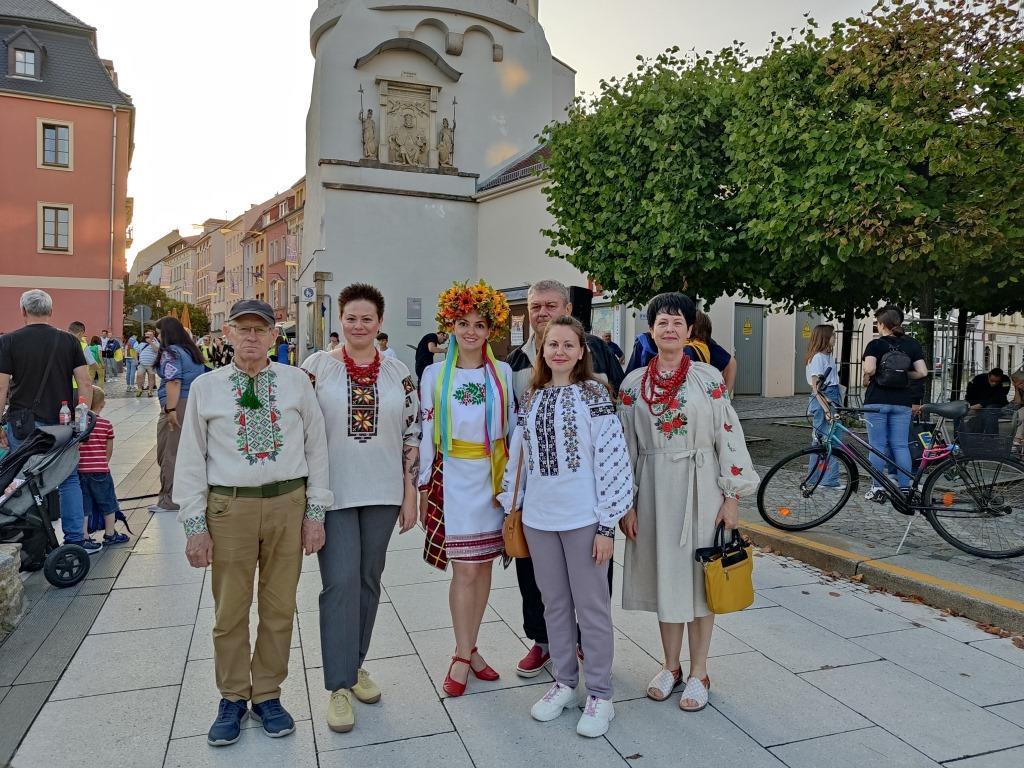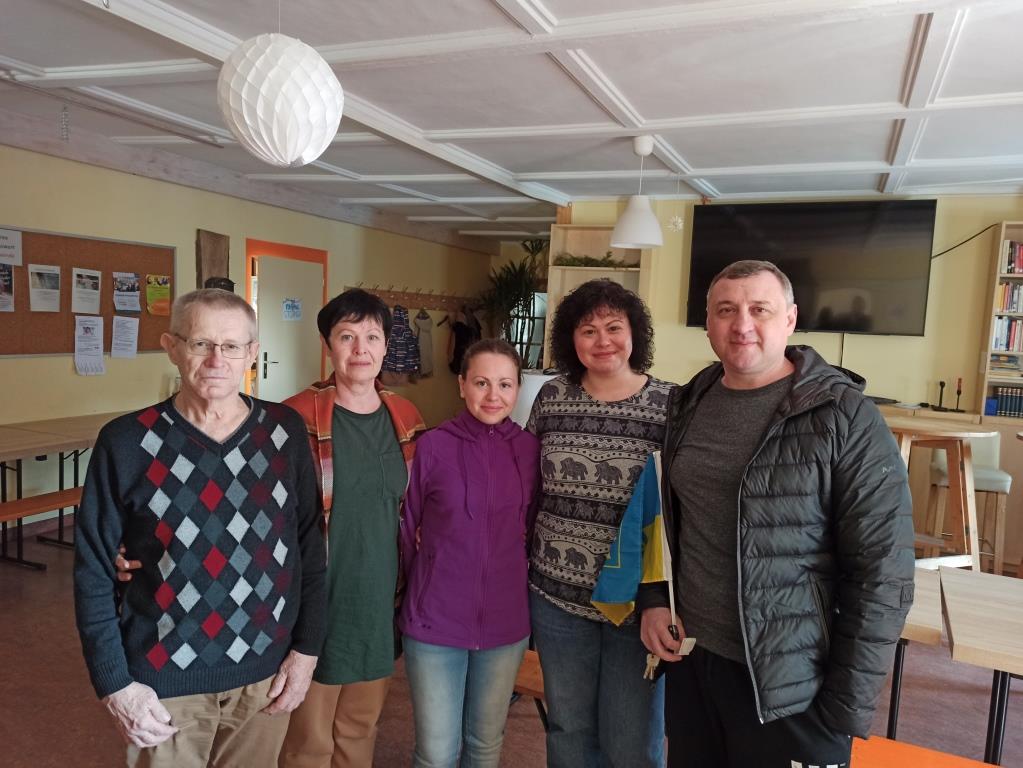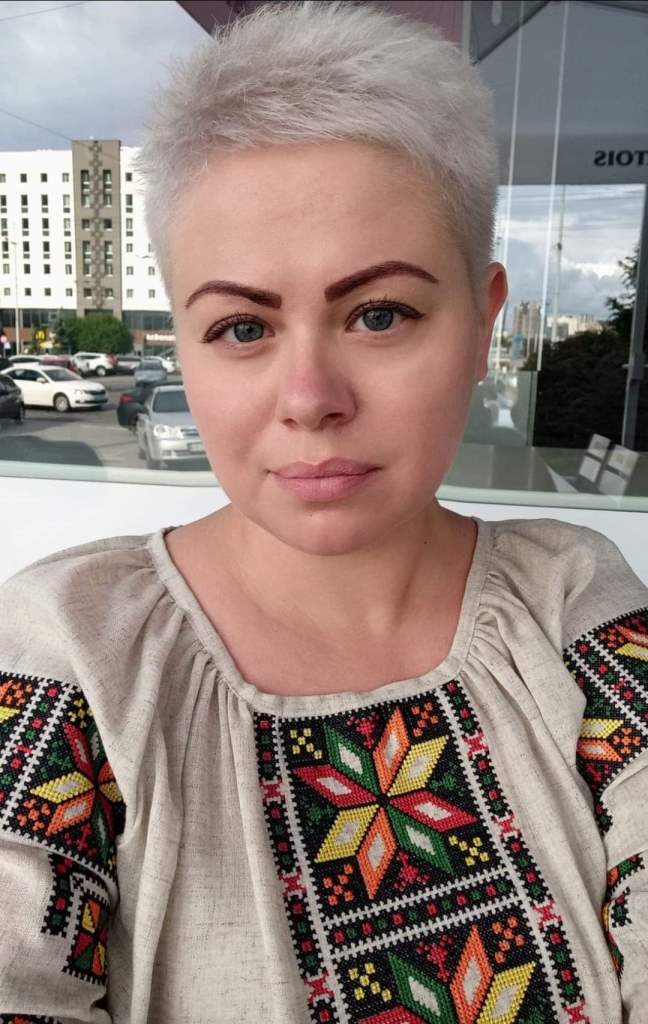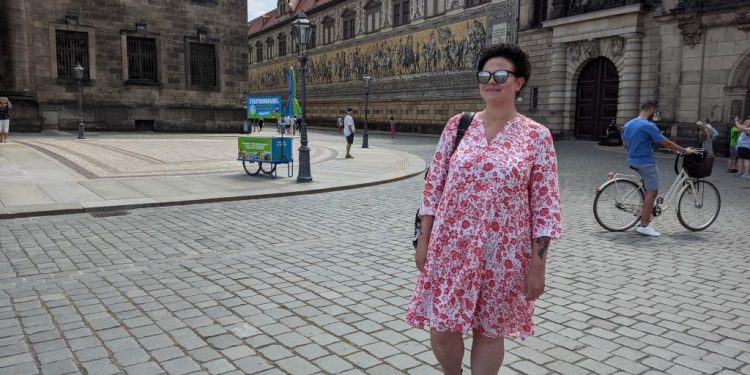Journalist Maryna Kuraptsеva, a refugee, has twice escaped from the clutches of the “Russian world.” In 2014, she evacuated from Donetsk, and in the spring of 2022, she fled the devastated town of Borodyanka in Kyiv Oblast. She is currently in Germany, and whether she will return to Ukraine remains uncertain. She says that enduring such a situation for the third time would be beyond her strength.
“I sat on the couch and cried so hard that everything hurt.”
After evacuating in 2014, Maryna and her family quickly settled in Borodyanka, near Kyiv. She stuck to her profession as a writer, focusing on stories about internally displaced people, much like herself. She recently worked with the “Dom” TV channel, penning news articles for their website. On February 24, while starting her morning shift, a shockwave coursed through her as she logged into her work chat.
— I simply entered the chat, and for a few minutes, my consciousness literally refused to accept what I was seeing in the news feed. At that moment, I didn’t even think about where I was: Borodyanka is in the rear of Bucha, Irpin. Now I regret not reacting immediately. I should have gone anywhere and by any means—on foot, crossing the highway—it didn’t matter, — recalls the journalist.
On February 24, Maryna Kuraptsеva, like many journalists, persisted in her work. She tracked news in Ukrainian cities with her friends and kept an eye on reports about Borodyanka and nearby areas. After her shift, she went shopping with her mother, finding near-empty shelves due to panic buying.
— We met confused people. There was a long line at the pharmacy, and people were panicking and arguing, — Maryna continues.
Returning from the store, Maryna was consumed by a single thought: “They’ve come for us again.” She and her family realized they had to flee once more, as this time, the war had spread beyond her native Donetsk to all of Ukraine.
— I went to the closet and started packing things. I looked at them and thought that we had to leave everything again. Over these eight years, we put a lot of effort and hard work into acquiring all these things to create decent living conditions. And now we’re losing it all again, — says the refugee. — I sat on the couch and cried so hard that everything hurt. Because I felt like I had lost my life for the second time—I thought about my parents and my sister. And the ‘final chord’ was when someone in the chat for our building wrote, ‘Turn off the lights.’

“The plane deliberately targeted people fleeing from the town through the fields.”
On February 25, local residents in Borodyanka were searching for ways to leave the town. However, at that point, all the bridges had already been blown up, and neither taxis nor buses were moving anywhere. Maryna was “sitting on her suitcase” and continued to work. Amidst the flood of news, she found unreliable information to somewhat alleviate the panic of local residents. But on the second day of the war, she realized that her work was over.
— On February 26, I stopped working when a friend who lived on the outskirts of the town messaged me that a Russian column had demolished the first building, and people had died. I packed my laptop, took my ’emergency bag,’ and my family and I went to the bomb shelter next to our building, — Maryna recalls with a sigh.
There were over 200 people in the shelter. When on March 1, Borodyanka came under heavy bombardment from airplanes, everyone resigned themselves to their fate.
— I remember the moment when the plane circled and dropped bombs. The pilot clearly watched where everyone was running. A split second when you can change something. People started running out of the shelter, and I stood up and started shouting at them to stay still. If they had run, they would have died, — Maryna recounts. — Later, we learned that the plane deliberately targeted people fleeing from the town through the fields. It seemed like they came not with some military purpose but specifically to exterminate the population.
At that time, the local territorial defense was putting up a brave fight against the occupiers.
Men were stopping the “second largest army in the world” with Molotov cocktails, but they couldn’t withstand aerial bombardments. The shelter was overcrowded.
— On the ventilation in the bomb shelter, there was a whole ‘battery’ of children’s bottles lined up. Children, women, elderly people, and even dogs and cats were engulfed in despair, — the journalist recalls.
Eventually, the State Emergency Service managed to organize the evacuation of the people. They evacuated everyone to villages in the Borodyanka district, such as Zahaltsi, Myhalky, and Piskivky.

“I plan to stay alive. I plan to support my family and work.”
In Myhalky, locals sheltered Maryna’s family briefly. She actively sought a way out. Two days later, a “green corridor” opened, and on March 5, Maryna, her parents, and sister arrived in Kolomyia. With help from the National Union of Journalists, she evacuated to Germany, grateful to the kind German family who welcomed them in their early days abroad.
— When the homeowner learned that we liked knitting, she ordered yarn for us as a gift, which deeply touched us. The Germans were constantly concerned about our health and our mood, — Maryna says.
Maryna has been living in Germany for a little over six months now, and she rents accommodation with her family. She is sharing her story with European and Ukrainian media about the crimes of the Russian army.
— After the evacuation, I woke up in the middle of the night for a long time, sometimes on the floor, hiding from shelling, and had nightmares. But on the second day, I was giving interviews to colleagues from many countries and, of course, primarily from Ukraine. I told them everything I knew about the crimes of the Russian army in Borodyanka, — the journalist says.
The question about her future plans, considering her having to leave her home twice due to war, triggers panic in Maryna. However, one thing she is certain about: she must live and work.

— I plan to stay alive. I hope there won’t be a nuclear war. I plan to support my family and work. I plan to look for opportunities to return to Ukraine. But I understand that as long as Russia is not brought under control, as long as it exists in its current form, the risks remain. And for the third time, I won’t be able to leave everything,— Maryna confesses.
And she has no plans to leave journalism either. She believes that she and other refugee journalists living abroad have a significant responsibility: to do everything to ensure that the world does not forget about the war. Ukraine is not just fighting for its existence but for the life of all of Europe.
This series, titled Executed Free Speech, is created as part of a project Drawing Ukrainian And International Audience’s Attention To Serious Violations Of Human Rights And Crimes Against Journalists And Mass Media By The Russian Federation, which is performed by the National Union of Journalists of Ukraine, with support from the Swedish non-profit organization Civil Rights Defenders.
JOURNALISTS ARE IMPORTANT. Stories of Life and Work in Conditions of War is a cycle of materials prepared by the team of the NUJU with the support of the Swedish human rights organization Civil Rights Defenders.
#CRD

 THE NATIONAL UNION OF
JOURNALISTS OF UKRAINE
THE NATIONAL UNION OF
JOURNALISTS OF UKRAINE
















Discussion about this post